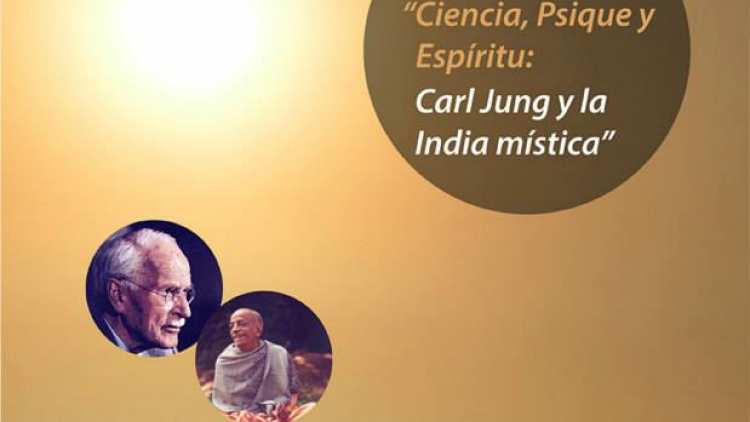Karl Jung and the Indian Mysticism: Academic Conference in Chile
By Cintamani Madhavi Dasi | Янв 30, 2014

“How does the concept of “mind” emerged? How the division of science was conceived? What was the contribution from the philosopher and psychiatrist Carl Jung to Western philosophy?”: There and other were some of the questions made in the Conference “Science, Psyche and Soul: the meeting of Dr. Carl Jung and the Mystical Yoga of India”, held last Thursday 23 January in Santiago de Chile, and attended by the renowned Chilean scientist Humberto Maturana.
The event, organized by the North American Institue for Oriental and Classical Studies (NIOS), took place in Pablo Neruda Foundation and was led by the psychologist Huber Hutchin Robinson, internationally known as Hanumat Presaka Swami, an ISKCON monk who spreads the knowledge of the ancient Indian texts since more than 30 years.
Hanumat Presaka Swami highlighted some similarities of Eastern philosophy with the conclusions of Carl Jung, as “the fact that for Jung the psyche can be understood as substantial and permanent, and does not identify with the mind”; phenomenon which is vastly described in the Bhagavad Gita.
The conference was attended by the renowned Chilean scientist Humberto Maturana with his apprentice and co founder of the Matríztico Institute, Ximena Dávila, who expressed their interest in the subject and their desire to go deeper on the concepts presented.

Ximena Dávila, Hanumat Presaka Swami and Humberto Maturana
Humberto Maturana has a National Science Award and has developed many pioneering concepts in the biological sciences. The Matríztico Institute aims to “address the understanding of human origins in the ancestral family, in a life that is focused on the pleasure of living in a loving life to be transformed over the generations and which is carried from one generation to another in learning children, and has the character of continuous enrichment and transformation by the recursive nature of the do in the talking “, so it is something in the nature of man and “people feel good when they are loving beings, and what we do is to show people these loving beings, natural of them”, says Maturana.

Humberto Maturana, Ximena Davila and Hanumat Presaka Swami had a three hours meeting after the Conference in the Matríztico Institute, where they continued their deep conversation about the concepts of science, culture and spirituality, biology and Eastern philosophy.















